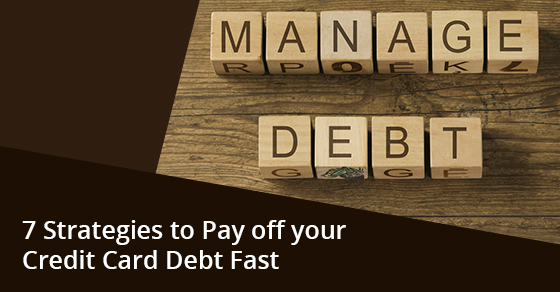There is no denying that we often get lured into getting credit cards even if our common sense warns us against it. After all, they are accepted everywhere, do not require us to carry cash most of the time and help in getting loans sanctioned easily. With all their perks, we often end up overusing our credit cards until one day we land ourselves in deep trouble — with all the debt piling in one after the other.
While it is true that credit cards provide you with an emergency line of credit to cover any unexpected rise in expenses, they can be a nuisance if the debts are not paid off in time, leading to higher rates of interest and a bad credit score to your name.
If you too are reeling under the pressure of excess credit, you should come up with a systematic plan based on a specific financial goal. The trick to reducing your pending dues includes the reduction of further credit before the debt consolidation of the outstanding one – that is, you should know how to reduce credit cards usage without discarding it altogether. This will prevent your credit card interest from snowballing further.
Listed below are a few tactics to handle your credit card woes to help pay off your debts faster.
1. Keep your credit cards out of reach
The most obvious way of reducing the outstanding credit is to stop yourself from adding more dues to your existing ones. Hiding your credit card until you have cleared off all the debts and getting into the habit of buying things with cash is a great way to discipline yourself. This not only helps you prioritize your needs from your wants but also puts less pressure on your current dues. You will then be extra cautious about spending money and think twice before you indulge in an extravagant spending spree.
2. Set a financial goal
You should set yourself practical targets which can be achieved without much hassle. Jot down all your debts and prioritize them in order to ensure the least possible penalties. The list should include all your outstanding debts, including mortgage, car loans, overdraft, etc. While some people prefer to pay off their mortgage and car loan first, there are others who prefer to ease the burden of higher credit card interest first. Proper planning can help you stay focused on clearing off your dues and allows you to keep track of your monthly progress.
3. Reduce your expenses
You can gain pace in repaying your debt by cutting down on your expenses and freeing up some cash. You can closely monitor your monthly expenses by tracking your expenditure every week or month. This will lead you to seek more opportunities to reduce present costs as you become fully aware of the inflow and outflow of your money.
4. Maximize your savings
Your savings can help you pay off your loans faster. If you are one of those who has been regularly depositing money in a provident fund or an investment plan, you can take the help of these funds to free yourself of the burden of credit card dues. Availability of lump sum cash can relieve you of what you owe immediately. Besides, you can keep funding of your saving bonds on hold until you accumulate the money to pay off all the outstanding dues.
In the longer run, the money saved by you in paying off your dues quickly will be considerably higher than the interest gained by depositing the same amount of money in a savings bond. So, make intelligent choices and creatively utilize your tax refunds, interests or salary increases to erase the records of your debts clean.
5. Decide on a monthly expenditure plan
If you’re someone who frequently finds themselves burdened by loans, you should design a monthly spending plan for your family. Not only will this keep flamboyant purchases in check, but it will also give you the awareness to live within your means. This will, in turn, reduce your use of credit cards along with giving you a rough estimate as to when you can be entirely free from your debts.
6. Adopt the Snowball Method
Arguably, the most efficient way to come out of your outstanding dues is to clear off the small credit card debts first, as this has a psychological impact and encourages you to achieve your goals faster. Paying off smaller amounts first makes you feel that you are progressing faster, can give you a sense of relief and prepares you to face future hurdles in debt consolidation. Paying down one small due after the other will keep on chipping away at the outstanding amounts to be paid while you are simultaneously saving money to pay off bigger loans.
7. Opt for a debt consolidation loan
When planned efficiently, debt consolidation loans and balance transfers can pull you out of your credit card woes successfully. Block your credit cards temporarily while you look for a consolidation loan to stop yourself from using them further. Make sure you conduct proper research before you opt for a loan to ensure that you do not end up paying more interest for the loan than for the credit card debt and that the loan doesn’t come with any hidden charges or conditions.
Paying off your debt is a systematic process and requires a well thought out approach. Talk to our professionals and let them help you in designing your payoff plan as per your convenience. Call us at 1-866-719-8547 or contact us here to book your free consultation.

